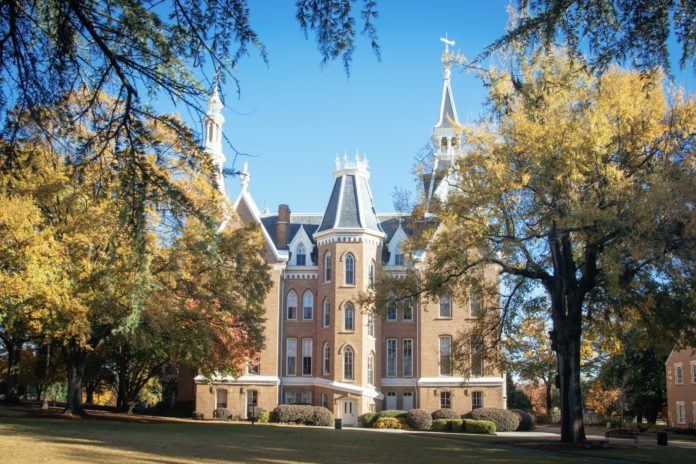ATLANTA — China, with a 10 percent annual growth and rapid industrialization and infrastructure expansion, is increasing energy use at unprecedented rates. American consumers are already feeling those increases at the gasoline pumps as China’s growth increases demand — and prices — for the world’s oil supplies. As these forces continue, where will China place itself?
A forum, to be held this Sunday on Mercer University’s Atlanta campus, entitled “China’s Energy Policy: Implications for International Affairs and Economic Development,” will seek to answer that question. The forum will begin at 4 p.m. on Sunday, April 22, in Room 220 of the Business-Education Building on Mercer’s Atlanta Campus, 3001 Mercer University Drive, Atlanta.
The forum is jointly sponsored by the Atlanta Chapter of the US-China Peoples Friendship Association and the China Research Center. The event is free and open to the public.
This forum will touch on three important areas: the impact of China’s economic development and government development policy on energy use and options; the international relations implications of energy policies and pressures; and domestic opinion and politics of these energy issues.
Panelists for the forum include: Penelope B. Prime, professor of Economics and Business at Mercer University and director of the China Research Center; Yawei Liu, director of The China Program at The Carter Center and associate professor at Georgia Perimeter College; and John W. Garver, professor at The Sam Nunn School of International Affairs, Georgia Institute of Technology
China is already the second largest economy in the world after the U.S., and the second largest consumer of energy. It is projected that this growth path will mean a 150 percent increase in energy needs by 2020. Oil consumption alone was expected to increase by nearly half a million barrels per day in 2006, representing over a third of the world’s increase.
This process will, of course, put additional pressure on energy supplies and prices around the world. In addition, China’s foreign policy will need to take energy needs into consideration. Further, citizens in China and beyond are increasingly concerned about the environment, and how to develop in a more sustainable way than has been accomplished so far.
For more information on the forum, contact Ed Krebs at (770) 949-5112 or edkrebs@hotmail.com, or Penelope Prime at (678) 547-6235 at chinaresearchcenter@gmail.com.
About the China Research Center:
The Center, headquartered on Mercer University’s Atlanta campus, links China experts in the greater Atlanta area to the larger community interested in developments in Greater China in business, media, academia and government. The Center promotes original research on Greater China’s contemporary political and economic situation, and disseminates research results, policy options, and business and study opportunities for China, Taiwan, Macao and Hong Kong. The Center serves as a bridge, and a base for collaboration, between the Southeast United States and Greater China.
About Mercer University:
Founded in 1833, Mercer University is a dynamic and comprehensive center of undergraduate, graduate and professional education. The University has 7,300 students; 11 schools and colleges – liberal arts, law, pharmacy, medicine, business, engineering, education, theology, music, nursing and continuing and professional studies; major campuses in Macon and Atlanta; four regional academic centers across the state; a university press; two teaching hospitals — Memorial Health University Medical Center and the Medical Center of Central Georgia; educational partnerships with Warner Robins Air Logistics Center in Warner Robins and Piedmont Healthcare in Atlanta; an engineering research center in Warner Robins; a performing arts center in Macon; and a NCAA Division I athletic program. For more information, visit www.mercer.edu.
— 30 —










